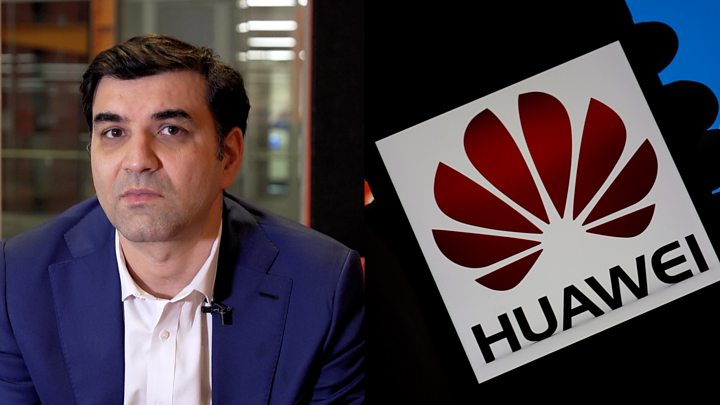For the British royal family, that has meant slimming down to reflect more austere times -- as demonstrated by the ever-decreasing numbers appearing on the palace balcony during national celebrations.
The issue for William is that he is one of only two siblings. Which is why his brother, Prince Harry, was always seen as integral to the monarchy -- the key burden-sharer of his generation.
The Duke and Duchess of Sussex's announcement wasn't just a personal loss for the family; it disrupted the entire structure, strategy and brand of the Crown, which is a key pillar of British democracy.
All this at a time when the ageing head of state, Queen Elizabeth II, had been hoping to step back herself at the age of 93, allowing the next generation to pick up more of her duties.
Ultimately, the departure of the Sussexes capped off a seismic 12 months that proved the British monarchy needed its Queen more than ever, firmly dispelling any suggestion that she might soon retire.
A year of royal scandal
The first royal scandal of 2019 came in January when the Queen's husband, the Duke of Edinburgh, was involved in a
car crash near Sandringham, the family's estate in Norfolk, eastern England. Prince Philip was unhurt when his Land Rover flipped onto its side, though a woman in the other car was injured.
But when the 98-year-old duke -- who is rarely seen these days following
his retirement in 2017 -- was spotted back behind the wheel the following day, there was a media furore.
The situation went from bad to worse when it emerged that the victim had not been
immediately contacted by Prince Philip in the days after the crash. An announcement that the elderly royal would give up his driving license followed swiftly -- no doubt following discussions with his wife.
The Queen is mostly based at London's Buckingham Palace during the week. As royal commentator Richard Fitzpatrick explained: "The Queen has been without her 'strength and stay' as [the duke] is based at Wood Farm on the Sandringham Estate [in Norfolk, 100 miles north of London], even though they reportedly speak every day by telephone."
Fitzpatrick added that the absence of the long-time patriarch -- who previously assumed the roles of "modernizer" and "pragmatist" -- had been keenly felt this year.
In the duke's absence, Prince Charles and his son
Prince William -- also known by their official titles of the Prince of Wales and Duke of Cambridge -- started accompanying the Queen more to engagements.
It's all part of the inevitable transition to a new monarch. But abdication is dismissed out of hand by aides who point to the Queen's repeated commitments to "life-long service."
Even the idea of a regency -- where she retains the Crown but hands over all official responsibilities to Charles -- appears to be off the agenda.
Sussexes dominate headlines
Meanwhile, another royal clash with the press was brewing.
In March, a CNN investigation revealed the palace had beefed up its social media operation amid a rise in racist online abuse
targeting the Duchess of Sussex. It has been devoting more resources to deleting comments targeting the duchess, blocking abusive accounts and filtering out use of the n-word along with gun and knife emojis.
At the extreme end, a far-right teenager who reportedly branded Prince Harry a "race traitor" and suggested he should be shot after his marriage to Meghan.
The teen was jailed for more than four years.
Against this backdrop, the couple's battle with the British media escalated.
When the
palace revealed that millions of pounds of public money had been used to renovate Frogmore Cottage, the Sussexes' family home near Windsor Castle, newspapers complained they weren't getting fair access to the family, particularly after
baby Archie's christening was closed to the media.
The couple was
also accused of hypocrisy for using private jets to fly off on holiday, while campaigning on environmental issues.
In response, the pair
went on the offensive over what Harry described as a tabloid campaign against Meghan that mirrored the treatment meted out to his mother,
Diana, Princess of Wales.
The duchess sued the Mail on Sunday, alleging the tabloid had illegally published a private letter to her father, Thomas Markle. And the duke launched his
own legal proceedings against the Daily Mirror and the Sun, over alleged phone-hacking.
All publications deny the couple's claims and have vowed to fight them vigorously.
When the Queen came to the throne in the 1950s, the media was more limited and reverential in tone. Since then, the media landscape has changed dramatically, and the intensified scrutiny on her family has taken a toll on its younger generations -- particularly the Sussexes.
"I never thought that this would be easy, but I thought that it would be fair," the duchess said of her treatment by the media, in a documentary for CNN affiliate ITV News, which aired in October.
"I've really tried to adopt this British sensibility of a stiff upper lip," she said. "I tried, but I think what that does internally is probably really damaging."
Asked how she was feeling, Meghan responded, "Thank you for asking because not many people have asked if I'm okay, but it's a very real thing to be going through behind the scenes."
That comment was seen by some columnists as a slight directed at other royal family members that they haven't offered support. And was compounded by Prince Harry's
acknowledgment of tensions with his older brother Prince William, saying they are on "different paths."
After the program aired, a source at Kensington Palace told the BBC that the Duke of Cambridge was "worried" about his brother.
That was followed up by a source close to the Sussexes
telling CNN the couple are "single-handedly modernising the monarchy," despite officials around them being "afraid" to harness their power.
Rifts in the family
This flood of leaks and counter-leaks fueled the tabloid narrative of a
rift in the family. The rumours appeared to be confirmed when the Sussexes in January announced that they would be
stepping back from their senior roles, splitting their time between the UK and North America with the intention of becoming financially independent.
A
source told CNN that the Queen had expressly asked Harry to hold off releasing any statements regarding the couple's future. Instead, her grandson blindsided the family by taking the somewhat nuclear option of going public, a move that reportedly "upset" Her Majesty.
There followed a crisis meeting at The Queen's Sandringham Estate, involving the monarch and Princes Charles, William and Harry.
In
a statement issued after their talks, the Queen took on the tone of a grandmother, saying "these are complex matters for my family to resolve."
But she also had the firmness of a leader, making clear that while the Sussexes were still much-loved members of the family, they were no longer part of "the firm," as it is known.
Prince Andrew's disastrous interview
Just months earlier, the Queen's second son Prince Andrew, the Duke of York, also stepped back from public duties -- though this was more an act of damage control, than a lifestyle choice.
It followed a disastrous
extended interview with the BBC in November that was designed to clear up speculation about his association with convicted sex offender Jeffrey Epstein, but had precisely the opposite effect.
Epstein had allegedly trafficked Virginia Giuffre -- previously known as Virginia Roberts -- when she was 17 years old, forcing her to have sex with his friends, including Prince Andrew.
While the duke denied having any sexual contact with Giuffre, he didn't appear to regret his relationship with Epstein -- who
died by apparent suicide in August -- and failed to express any sympathy for the disgraced banker's victims.
The fallout from the
widely criticized interview dominated the tabloids for days, with reporters digging out inconsistencies in the duke's story. The situation descended into farce as pictures of a sweating Prince Andrew were dug out of the archives to undermine his claim that he didn't sweat at the time of the alleged offenses due to a medical condition.
Days later, Prince Andrew said in a statement that he did regret his association with Epstein and sympathize with his victims. But the damage had already been done, and he stepped back from his royal role, following a meeting with the Queen.
Multiple sources have made it clear to CNN that the Queen led on the issue of how to handle Andrew, just as she did during the Sussex crisis.
Despite the duke saying he was willing to help US law enforcement officials with their investigation, authorities later claimed they had received
"zero" cooperation from the royal.
Political pressure
Amid all her family woes, the Queen was also tested professionally when Prime Minister Boris Johnson asked her to suspend Parliament for five weeks at the height of the Brexit political deadlock.
She rubber-stamped the request in line with her duty to stay out of politics and to act only on the advice of ministers.
But when the Supreme Court found the prorogation was illegal, it raised the uncomfortable question of whether the Queen had broken the law.
The ruling
led to accusations that Johnson's government had deliberately misled the monarch as part of its strategy to secure Brexit -- but regardless, any political manoeuvre involving the Queen is the ultimate faux pas.
Johnson was forced to personally apologize for embarrassing the monarch, according to the
Sunday Times. The paper's royal sources revealed that "there was huge disquiet in the Queen's household about Johnson's decision to prorogue parliament."
The Queen famously described 1992 as her "Annus Horribilis," when three of her children endured marital strife and Windsor Castle almost burned down.
If that was the year she was tested personally, then the last 12 months are when she has been tested professionally.
The monarchy is still intact but it needs time to recalibrate. Elizabeth will be hoping that it's allowed the time to do that, without any further disruption.
She remains firmly at the helm. But part of that recalibration continues to be transitioning her heirs into their new roles.
https://news.google.com/__i/rss/rd/articles/CBMiZmh0dHBzOi8vd3d3LmNubi5jb20vMjAyMC8wMi8xNS9ldXJvcGUvYnJpdGlzaC1yb3lhbC1mYW1pbHktcXVlZW4tZWxpemFiZXRoLXNjYW5kYWwtZ2JyLWludGwvaW5kZXguaHRtbNIBamh0dHBzOi8vYW1wLmNubi5jb20vY25uLzIwMjAvMDIvMTUvZXVyb3BlL2JyaXRpc2gtcm95YWwtZmFtaWx5LXF1ZWVuLWVsaXphYmV0aC1zY2FuZGFsLWdici1pbnRsL2luZGV4Lmh0bWw?oc=5










